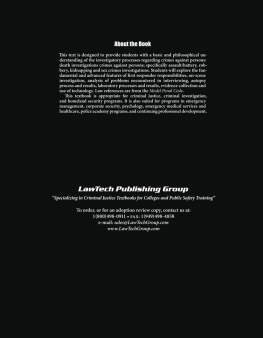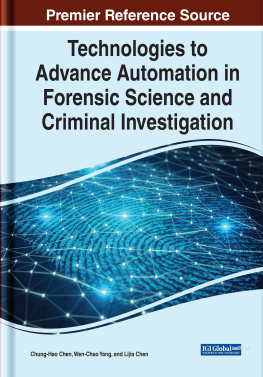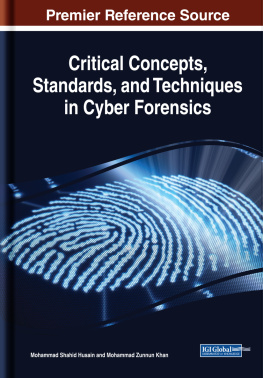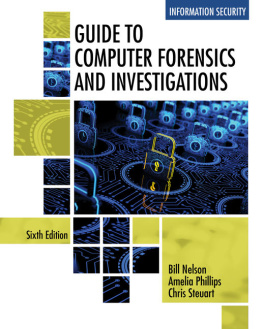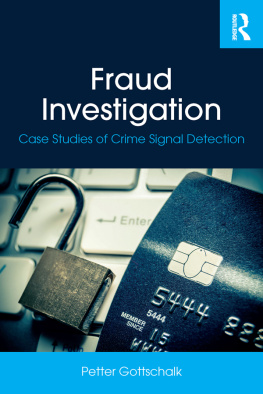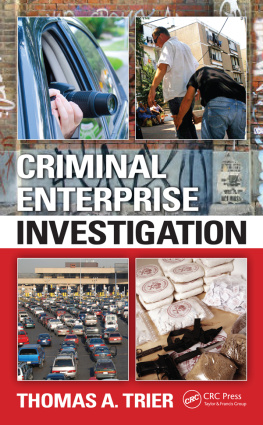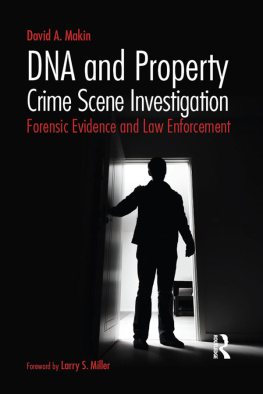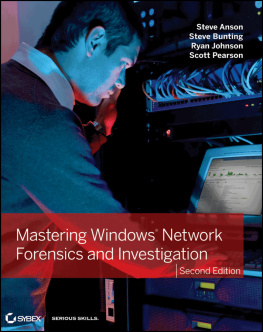
Key Terms and Concepts for Investigation
Key Terms and Concepts for Investigation provides students and practitioners with a compilation of concise, accurate articles on major topics pertaining to criminal, private, and military investigations. Each entry in this reference features a definition and then describes its function in investigation, including best practices and job characteristics. From financial crimes, digital forensics, and crime scene investigation to fraud, DNA, and workplace violence, this compilation helps students master investigation and offers seasoned investigators a resource to further their knowledge of recent developments in the field.
John J. Fay was a special agent of the U.S. Army Criminal Investigation Division (CID) and later the Director of the National Crime Prevention Institute at the University of Louisville. He has held security management positions in the petroleum industry, as well as teaching at the university level. He holds the Master of Business Administration degree from the University of Hawaii, and is a well-known and respected author of many books.
Jack Fay is an icon in the law enforcement and security management fields. He has pioneered the merger of law enforcement and security into a professional practice, eclipsing the highest ideals of both disciplines. Like his other books, this book provides a reasoned and logical process of value to investigators.
Sal DePasquale, Criminal Justice, Texas A&M University
Jack Fays extensive experience and knowledge of law enforcement and criminal investigation is evident in this collection of common sense discussions and advice by him and many of the top-ranked professionals in the field.
Warren Cox, Retired U.S. Army CID Special Agent and Retired Corporate Investigator
When Jack Fay and I were partnered he taught and guided me through many a difficult situation. In my experience, his knowledge of investigative practices is unmatched.
Harry Kinsella, Former Special Agent, U.S. Army Criminal Investigation Division
Key Terms and Concepts for Investigation
A Reference for Criminal, Private, and Military Investigators
Edited by John J. Fay
First published 2016
by Routledge
711 Third Avenue, New York, NY 10017
and by Routledge
2 Park Square, Milton Park, Abingdon, Oxon, OX14 4RN
Routledge is an imprint of the Taylor & Francis Group, an informa business
2016 Taylor & Francis
The right of the editor to be identified as the author of the editorial material, and of the authors for their individual chapters, has been asserted in accordance with sections 77 and 78 of the Copyright, Designs and Patents Act 1988.
All rights reserved. No part of this book may be reprinted or reproduced or utilised in any form or by any electronic, mechanical, or other means, now known or hereafter invented, including photocopying and recording, or in any information storage or retrieval system, without permission in writing from the publishers.
Trademark notice: Product or corporate names may be trademarks or registered trademarks, and are used only for identification and explanation without intent to infringe.
Library of Congress Cataloging in Publication Data
Key terms and concepts for investigation : a reference for criminal, private, and military investigators / edited by John J. Fay.
pages cm
Includes bibliographical references and index.
1.Criminal investigationTerminology.2.Private investigatorsTerminology.3.InvestigationsTerminology.I.Fay, John, 1934
HV8073.K4392015
363.2503dc23
2014049498
ISBN: 978-1-138-91465-0 (hbk)
ISBN: 978-0-323-29612-0 (pbk)
ISBN: 978-0-323-29651-9 (ebk)
Typeset in Sabon and HelveticaNeue
by Apex CoVantage, LLC
Contents
The field of investigation is both wide and narrow. It is wide because investigation is a function performed in many sectors and at many levels. In the public sector are law enforcement investigators working at municipal, county, state, and government levels. Investigators in the government sector work cases that cross state borders and have national implications. Branches of the military services use investigators that enforce military law. In the sector called the intelligence community are investigators gathering and processing information for national defense purposes. In the private sector are investigators working alone or in agencies of varying size, or working for clients who run the gamut from individuals to international corporations.
The field of investigation can be seen as narrow because the nature of the work demands specialization. An investigator in a city police department may work burglary cases only; a sheriffs deputy may spend a career investigating crimes that occur in the county jail; a state patrol investigator may work highway-related deaths and nothing else; and an agent of a federal investigation bureau may have one job, such as an investigator of stock exchange fraud or a hostage negotiator. Specialization in the private investigation field is no exception. Private investigators tend to migrate to specialties such as background checking, surveillance, and forensic auditing.
Contributors to this book, all of whom are investigators, were asked to submit an article on a practice or concept representative of their area of expertise. A general structure was suggested. Tell the reader: What is it? How does it work? Why is it important? This structure provides a degree of uniformity and a focus on nuts and bolts. Little will be found in this book that theorizes and postulates. A great deal will be found on how to investigate particular specialties across the board.
JAMES F. BRODER, CPP
Mr. Broder, now retired, was a consultant to Confidential Management Services, Inc. in San Dimas, CA, and Marsh and McLennan, Inc. He is former special agent, U.S. State Department, and the former assistant and chairman of the Investigations Subcommittee, U.S. House of Representatives. He is a member of the American Society for Industrial Security International, Society of Former Special Agents of the FBI, and Association of Former Intelligence Officers, and he is a past member of the Congressional Staff Association of the U.S. House of Representatives and the International Association of Professional Security Consultants. He holds the Legion of Merit, Vietnam. Mr. Broder has a bachelor of arts degree in criminology from the University of California. He is the author of Risk Analysis and the Security Survey (Butterworth-Heinemann); Investigation of Substance Abuse in the Workplace (Butterworth-Heinemann); Resources Control in Counter-Insurgency (Agency for International Development, U.S. State Department); and Case Management and Control of Undercover Operations for Business and Industry, which appeared in Professional Protection. He is a contributing author to the Encyclopedia of Security Management (Butterworth-Heinemann), and a contributing author to Effective Security Management (Butterworth-Heinemann).
JOSEPH P. BUCKLEY III
Joseph P. Buckley III is a forensic interviewer, detection of deception examiner, lecturer, and consultant. Mr. Buckley is president of John E. Reid and Associates in Chicago, Illinois. He has been with the firm since 1971. He is co-author of three books:


